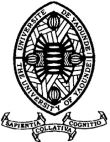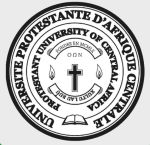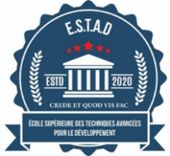Migration of Amplantzer Prosthesis in Bamako: About Two Cases
DOI:
https://doi.org/10.5281/hra.v2i7.5835Keywords:
Interatrial communication, patent ductus, arteriosus, Percutaneous closure, Amplatzer prosthesis, Migration, Extraction, BamakoAbstract
RÉSUMÉ
La communication interauriculaire et la persistance du canal artériel sont des malformations cardiaques congénitales fréquentes chez les enfants. Nous rapportons deux cas de migration du dispositif Amplatzer suite à la fermeture percutanée d'une CIA et d'un PDA. Le premier était âgé de 15 ans et présentait une CIA de 33 mm et une PCA de 08 mm. Le second était âgé de 2 ans et présentait une PCA de 07 mm. Les deux patients ont d'abord été traités par cathétérisme cardiaque en vue d'une fermeture percutanée de l'ostium secundum de la CIA et de l'APD. Les contrôles échocardiographiques ont révélé une migration intra ventriculaire de la prothèse dans le premier cas, et une migration de la prothèse dans l'artère pulmonaire dans le second. Une extraction chirurgicale a été réalisée.
ABSTRACT
Atrial septal defect and patent ductus arteriosus are frequent congenital heart defects in children. We report two cases of Amplatzer device migration secondary to percutaneous closure of ASD and PDA. The first one was 15-year-old who had a 33-mm ASD and a 08-mm PDA.
The second was 2-year-old with a 07 mm PCA. Both patients were initially managed by cardiac catheterization for percutaneous closure of ostium secundum ASD and PDA. Echocardiographic checks revealed intra ventricular migration of the prosthesis device in the first case, and migration of the prosthesis into the pulmonary artery in the second. Surgical extraction was performed.
References
. Houyel L. Communications interauriculaires. Encycl. Med Chir (éditions Scientifiques et Médicales Elsevier SAS, Paris, tous droits réservés), Cardiologie, 11-940-C-20, 2002, 8 p.
. Baumgartner H, Bonhoeffer P, De Groot NM et al. ESC Guidelines for the management of grown-up congenital heart disease (new version 2010). Eur Heart J. 2010; 31: 2915-57.
. Schneider Douglas J., Moore John W. Circulation. 17. Vol. 114. Ovid Technologies (Wolters Kluwer Sante); 2006. Brevet Ductus Arteriosus ; pages 1873-1882.
. Aubry P, Brochet E.., Juliard J-M, Fermeture percutanée des communications interauriculaires de l’adulte. Journal Marocain de Cardiologie IV (2011).
. Warnes CA; Williams RG, Bashore TM, Child JS, Connolly HM, Dearani JA, et al. ACC/AHA Guidelines for the management of adult with congenital heart disease. J Am Coll Cardiol. 2008; 52: e 143-263.
. Pascal A. Berdat, Tushar Chatterjee, Jean-Pierre Pfammatter, Stefan Windecker, Bernhard Meier, Thierry Carrel. Surgical management of complications after transcatheter closure of an atrial septal defect or patent foramen ovale. The Journal ofThoracic and Cardiovascular Surgery. 2000 ; 120 (6) : 1034-1038.
. L ABID, D. ABID; R. HAMMAMI, S. CHARFEDDINE, F. TRIKI, S. KAMMOUN. Percutaneous Closure of Ostium Secundum Atrial Septal Defect: Immediat and Long Term Results J.I. M. Sfax, N28 ; Février 18 ; 45 – 54.
. Chessa M, Carminati M, Butera G, et al. Early and late complications associated with transcatheter occlusion of secundum atrial septal defect. J Am Coll Cardiol. 2002; 39 : 1061-5.
. DiBaldino DJ, McElhinney DB, Kaza AK, et al. Analysis of the US Food and Drug Administration Manufacturer and User Facility Device Experience database for adverse events involving Amplatzer septal occluder devices and comparison with the Society of Thoracic Surgery congenital cardiac surgery database. J Thorac Cardiovasc Surg. 2009 ; 137 : 1334-41.
. Rym Gribaa, Sami Ouannes, Heithem Tangour, Sameh Ben Farhat, Houssem Thabet, Mehdi Slim, Aymen Elheraiche, et Elyes Neffati. Fermeture percutanée de canal artériel persistant, quelle prothèse faut il choisir ? Tunis Med. 2021 Nov; 99(11): 1085-1092. Published online 2021 Nov. 1. French.
. Bruckheimer Elchanan, Godfrey Max, Dagan Tamir, Levinzon Michael, Amir Gabriel, Birk Einat. Catheterization and Cardiovascular Interventions. 7. Vol. 83. Wiley; 2014. The Amplatzer duct occluder II additional sizes device for transcatheter PDA closure: Initial experience; pp. 1097-1101.
. Noureddine Atmani, Julia Mitchell, Olivier Metton, Jean Ninet. Récupération chirurgicale d’urgence d’une embolisation d’un dispositif d’occlusion septale Amplatzer.Service de chirurgie des cardiopathies congénitales, hôpital cardiologique Louis Pradel, Lyon, France. 04 décembre 2017 ; 07 décembre 2017
. Rouberie F., Kalfa D., Lenoir M., Le Bret E. Persistance du canal artériel. EMC (Masson SAS. Paris), Techniques chirurgicales – Thorax, 42-763, 2011.
. Faella HJ, Hijazi ZM. Closure of the patent ductus arteriosus with the amplatzer PDA device: immediate results of the international clinical trial. Catheter Cardiovasc Interv. 2000; 51:50-54.
. Bruckheimer Elchanan, Godfrey Max, Dagan Tamir, Levinzon Michal, Amir Gabrie, Birk Einat. Cathétérisme et interventions cardiovasculaires. 7. Vol. 83. Wiley ; 2014. Le disposif d’occlusion de conduit Amplatzer II de tailles supplémentaires pour la fermeture de PCA car cathéter : expérience initiale ; pp. 1097-1101.
Kumar Saktheeswaran Mahesh, Subramanian Venkateshwaran, Bijulal Sasidharan, Krishnamoorthy Kavassery Mahadevan, Sivasankaran, Sivasubramonian, Tharakan Jaganmohan A. Cardiologie pediatrique. 7. Vol. 34. Springer Science et Business Media LLC ; 2013.
Fermeture percutanée d’un canal artériel persistant tubulaire ou allongé modéré à grand chez les enfants de moins de 3 ans : l’ADO II est-il approprié ? pages 1661 à 1667.
. Berger F. Ewert P. Bjornstad PG. Dahnert I. Krings G. Brilla Austenat I et al. Transcatheter closure as standard treatment for most interatrial defect: experience in 200 patients treated with the Amplatz’s septal occluder. Cardiol Young 1999; 9: 468-473.
. Houyel L. Communications interauriculaires. Encycl. Med Chir (éditions Scientifiques et Médicales Elsevier SAS, Paris, tous droits réservés), Cardiologie, 11-940-C-20, 2002, 8 p.
Fischer G, Kramer HH, Stieh J, Harding P, Jung O. Transcatheter closure of secundum atrial septal defects with the new self-centering Amplatzer’s septal occluder. Eur Heart J 1999 ; 20 : 541-549
. Payot M et Aggoun Y. Persistance du canal artériel et anomalies pouvant le simuler. Encycl. Méd Chir (Editions Scientifiques et Médicales Elsevier SAS, Paris, tous droits réservés), Cardiologie, 11-940-C-70, 2002, 16 p.
. Bureta G, Romagnoli E, Carminati M, Chessa M. Piazza L, Negura D et al. Treatment of isolated secundum atrial septal defects: impact of age and defect morphology in 1013 consecutive patients. Am Heart J, 2008; 156:706-12.
.Majunke N. Bialkowski J, Wilson N, Szkutnik M, Kusa J, Baranowski A, et al. Closure of atrial septal defect with the Amplatzer septal occluder in adults. Am J Cardiol 2009; 103:550-4.
. Du ZD, Hijari ZM, Kleinman CS, Silverman NH, Larntz K, for the Amplatzer Investigators. Comparison between transcatheter and surgical closure of secundum atrial Septal defect in children and adults: results of a multicenter non randomized trial. J Am Coll Cardiol 2002; 39: 1836-44.
. Shyam K. Sathanandam, Dan Gutfinger, Laura O’Brien, Thomas J. Forbes, Matthew J. Gillespie, Darren P. Berman, Aimee K Armstrong, Shabana Shahanavaz, Thomas K. Jones, Brian H. Morray, Toby A. Rockefeller; Henri Justino, David G. Nykanen, Evan M. Zahn. Amplatzer Piccolo Occluder clinical trial for percutaneous closure of the patent ductus arteriosus in patients ≥ 700 grams. Catheter Cardiovasc Interv. 2020 Nov; 96(6): 1266-1276. Published online 2020 May 20.
Downloads
Published
How to Cite
Issue
Section
License
Copyright (c) 2024 Baba Ibrahima Diarra , Modibo Doumbia, Mamadou Touré, Adama Sidibé , Bakary Coulibaly, Sanoussy Daffe , Oumar Doucouré, Bourama Mamoutou Coulibaly, Traoré Kader, Touré Fadimata, Salia Traoré, Diallo Binta, Siriman Koita, Birama Togola, Seydou Togo, Moussa Abdoulaye Ouattara, Sadio Yena, Neville Paul , Guy Fernandez, Bina Nadjeeboulah, Erwan Flecher , Thiery Langanay, Alain Deloche

This work is licensed under a Creative Commons Attribution-NoDerivatives 4.0 International License.
Authors who publish with this journal agree to the following terms:
- Authors retain copyright and grant the journal right of first publication with the work simultaneously licensed under a Creative Commons Attribution License CC BY-NC-ND 4.0 that allows others to share the work with an acknowledgement of the work's authorship and initial publication in this journal.
- Authors are able to enter into separate, additional contractual arrangements for the non-exclusive distribution of the journal's published version of the work (e.g., post it to an institutional repository or publish it in a book), with an acknowledgement of its initial publication in this journal.
- Authors are permitted and encouraged to post their work online (e.g., in institutional repositories or on their website) prior to and during the submission process, as it can lead to productive exchanges, as well as earlier and greater citation of published work










